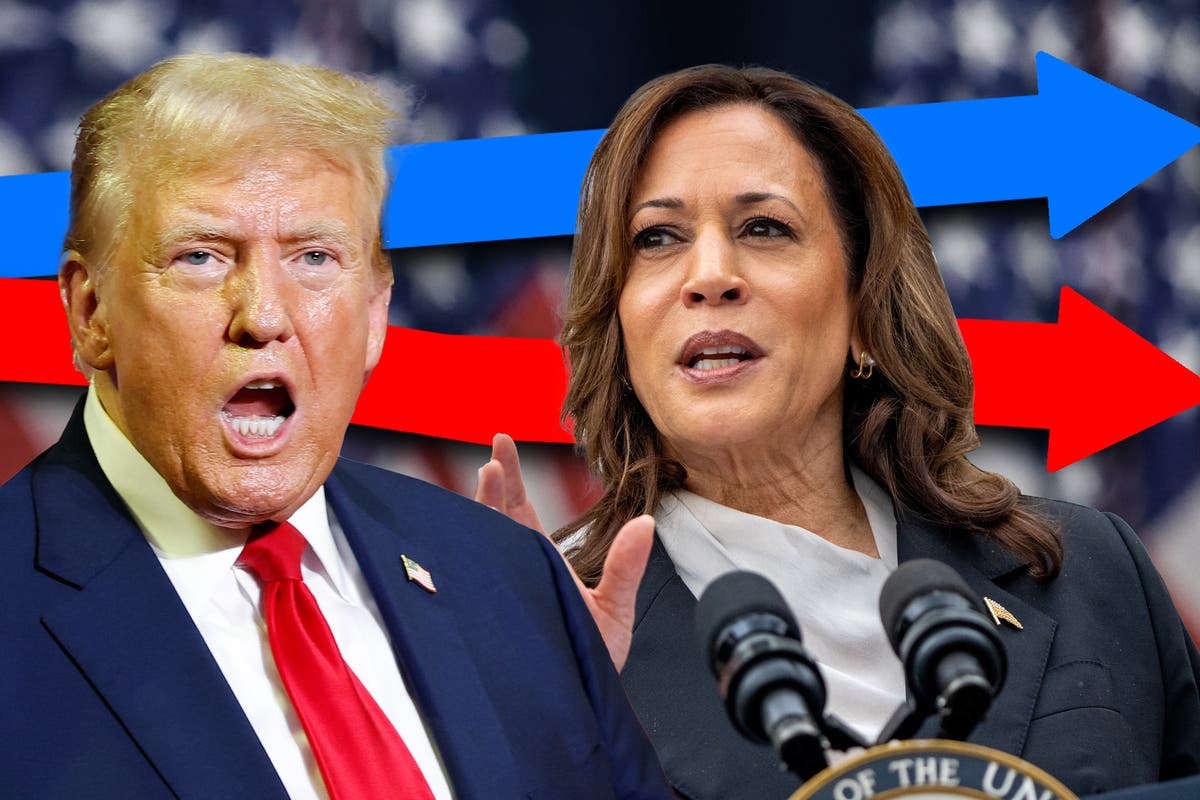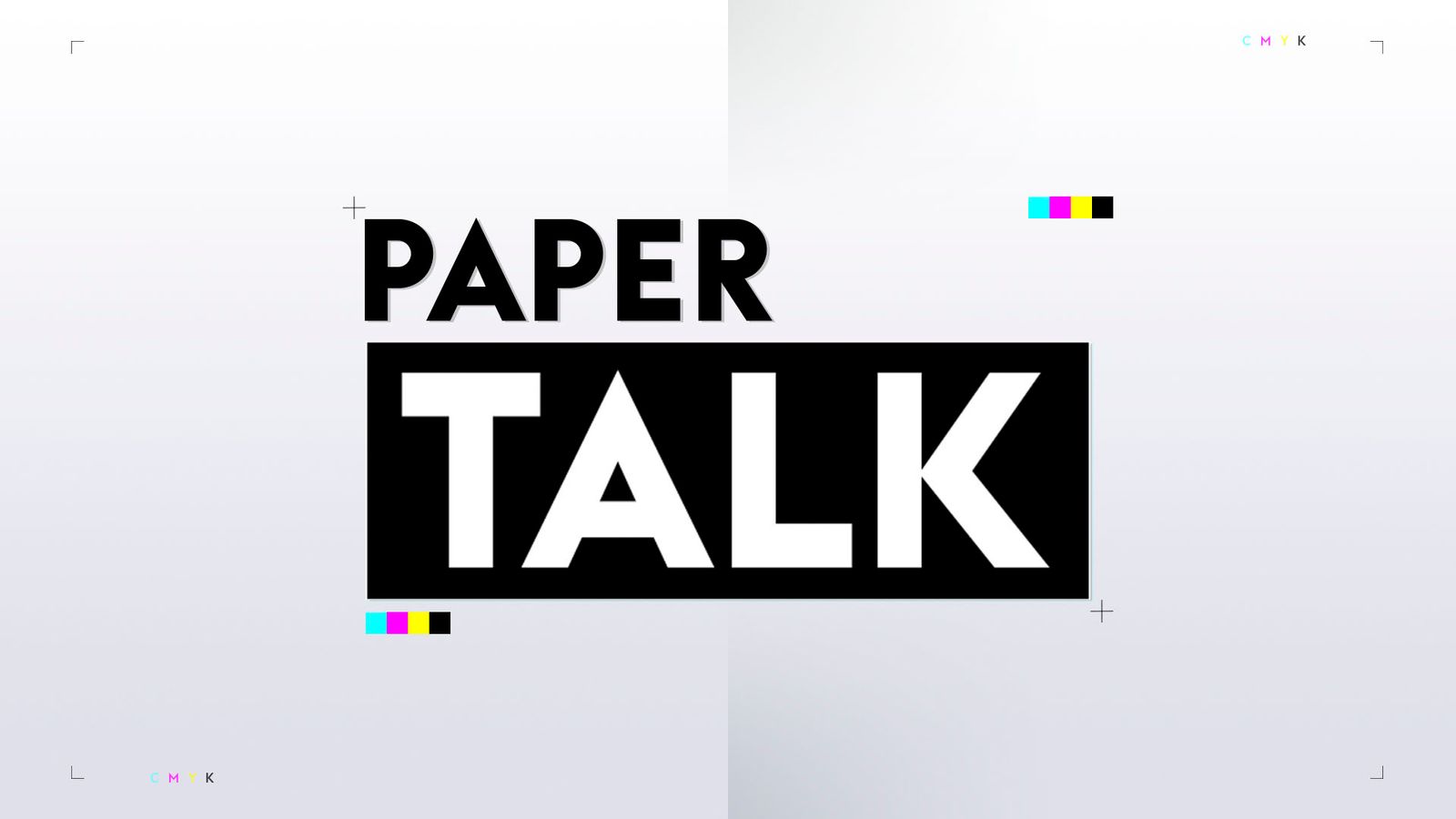World
Can Kamala Harris beat Donald Trump? Latest poll updates from the 2024 election

In less than 54 days, Vice President Kamala Harris will go head-to-head with Donald Trump as Americans cast their votes in the 2024 election.
The candidates faced off Tuesday night during the presidential debate in Philadelphia, the first since President Joe Biden stepped down from the Democratic ticket in July.
Now, pollsters are working to determine whether Trump’s angry outbursts or Harris’s calm demeanor will have an impact across the nation or in battleground states — with a splash poll showing that Harris “won” the debate in the eyes of voters.
So how will Harris actually fare against Trump in November?
Harris has a 2.8-point lead over Trump in the latest average of national polls, collated by FiveThirtyEight. On average, Harris has been marginally ahead of Trump in national polls.
Make sense of the US election with The Independent’s experts in our exclusive virtual event ‘Harris vs. Trump: who will make history?’ Reserve your space here.
The key group of independent voters are divided on a state-by-state basis, according to a set of polls from Morning Consult before the debate; though in many swing states, they appear to be favoring Harris over Trump, even when Trump leads overall.
In particular, our analysis of the Morning Consult poll shows that independent voters in Texas and Florida are leaning towards Harris, despite both states being Trump strongholds.
CNN’s snap poll following the first Trump-Harris debate shows that Harris managed to turn the tide with some voters.
More voters now believe Harris better understands the issues of people like them (44 percent) compared to Trump (40 percent), following the debate performance. Before the debate, the opposite was true.
Another poll earlier this week (pre-debate) from The New York Times/Siena College found that former president Trump was leading Harris overall by a slim +1-point margin, at 48 percent to 47 percent.
This same poll showed that nearly a third of voters (28 percent) felt they need to learn more about Harris, compared to 9 percent who would say the same about Trump.
Though it is too soon to say, the candidates’ debate performances may have turned this around.
State-by-state
The pre-debate Morning Consult poll shows substantial variation in presidential support among 14 states, with Trump and Harris tied in Georgia, Nevada, and North Carolina.
Each state tells a different story, however. A new set of polls from Morning Consult surveyed voters in 14 states up to September 8, finding that Harris has the strongest lead in Maryland, with a +32 point margin. For Trump, his strongest lead is in Texas, at +8 points over Harris.
The two candidates are tied in Georgia, Nevada, and North Carolina, while Trump has only a +2 point lead in Florida, smaller than in most polls in recent months.
Trump also leads by +2 points in Arizona, a state which has voted Republican in every presidential election since the 1950s — except 2020, when Biden won the state by 0.3 percent.
Independents
In a pivotal shift, Harris also leads Trump by +7.7 percent among independent voters, according to a new poll from Emerson College (up to September 4).
Capturing the independent vote will be crucial for either Harris or Trump to take the lead in this election. This is also the most likely group to vote for a third-party candidate, though with RFK Jr. out of the race, this has dwindled to just 4 percent of independents.
The nationwide Emerson College poll has 49.5 percent of independents saying they would vote for Harris, compared to 41.8 percent for Trump.
This is a substantial jump from the same poll one month ago, which showed Harris just inching ahead of Trump (46 percent to 45 percent) among independent voters.
However, 5 percent of independent voters say they are still undecided; and the elusive voter group are difficult to pin down, with higher variation between polls and regions than other demographics. Nonetheless, Harris can be credited with mobilizing the non-partisan voter base, whose support is much stronger since Biden dropped out.
Demographics
An Activote poll shows that Trump’s key supporters remain male voters, the 65+, and white voters with no college education.
However, Harris and Trump are tied in the 50-64 age group in this poll, which previously leaned Trump.
Harris polls best with young voters, female voters, and Black voters, among whom Harris has a +52 point lead.
Meanwhile, Trump has a +6 point lead with Latino voters.
While Trump is taking home rural voters, at 63 percent, Harris leads among both urban-resident (58 percent) and suburban voters (56 percent).
Suburban voters chose Trump over Hilary Clinton in 2016, while in 2020, Biden flipped the lead for Democrats.
Are voters convinced?
A separate ABC News/Ipsos poll up to August 27 shows that the American public thinks that Harris is doing a better job on her campaign overall, while Trump is in the red.
The poll also suggests that a third of Trump supporters (31 percent) have reservations about their choice.
This is nearly double the amount of people who support Harris with reservations (18 percent).
It seems Harris has inspired more devotion from Democrat supporters, as the same poll in July found that 34 percent of Biden supporters had reservations about his candidacy.
In July, just 34 percent of Biden voters strongly supported his candidacy, compared to 60 percent who now strongly support Harris.
However, one in five Harris voters are acting mainly out of dislike for other candidates; while just 9 percent of Trump supporters feel the same.
While the DNC from August 19 to 22 made little dent in the overall Harris-Trump split, the gender divide between the two candidates’ support continued to grow.
The number of women supporting Harris increased by +3 points from pre-convention numbers, to 54 percent, while just 41 percent of women surveyed support Trump.
However, Trump also received a boost of +5 points among men in this period; with 51 percent of men supporting the Republican candidate.










